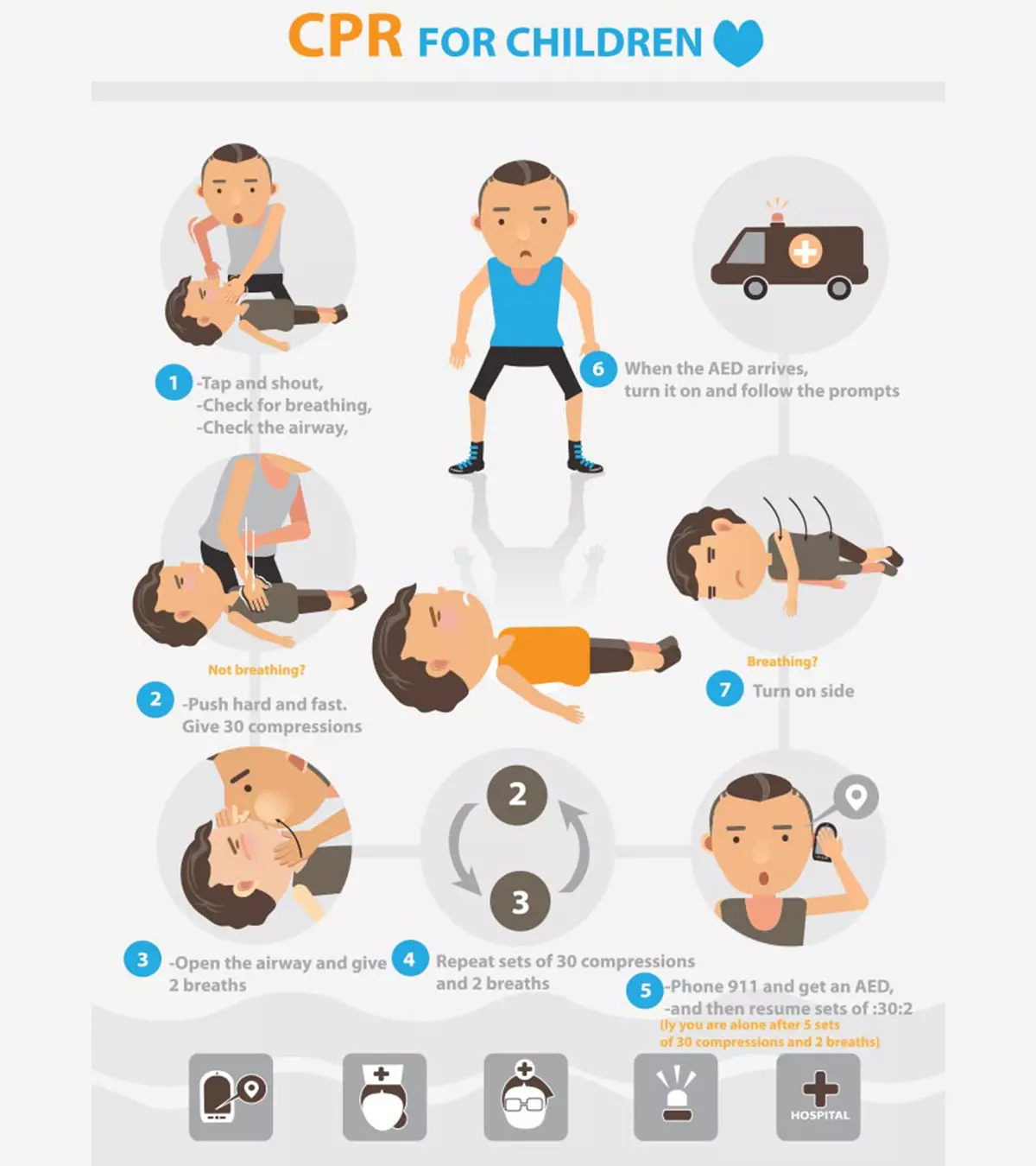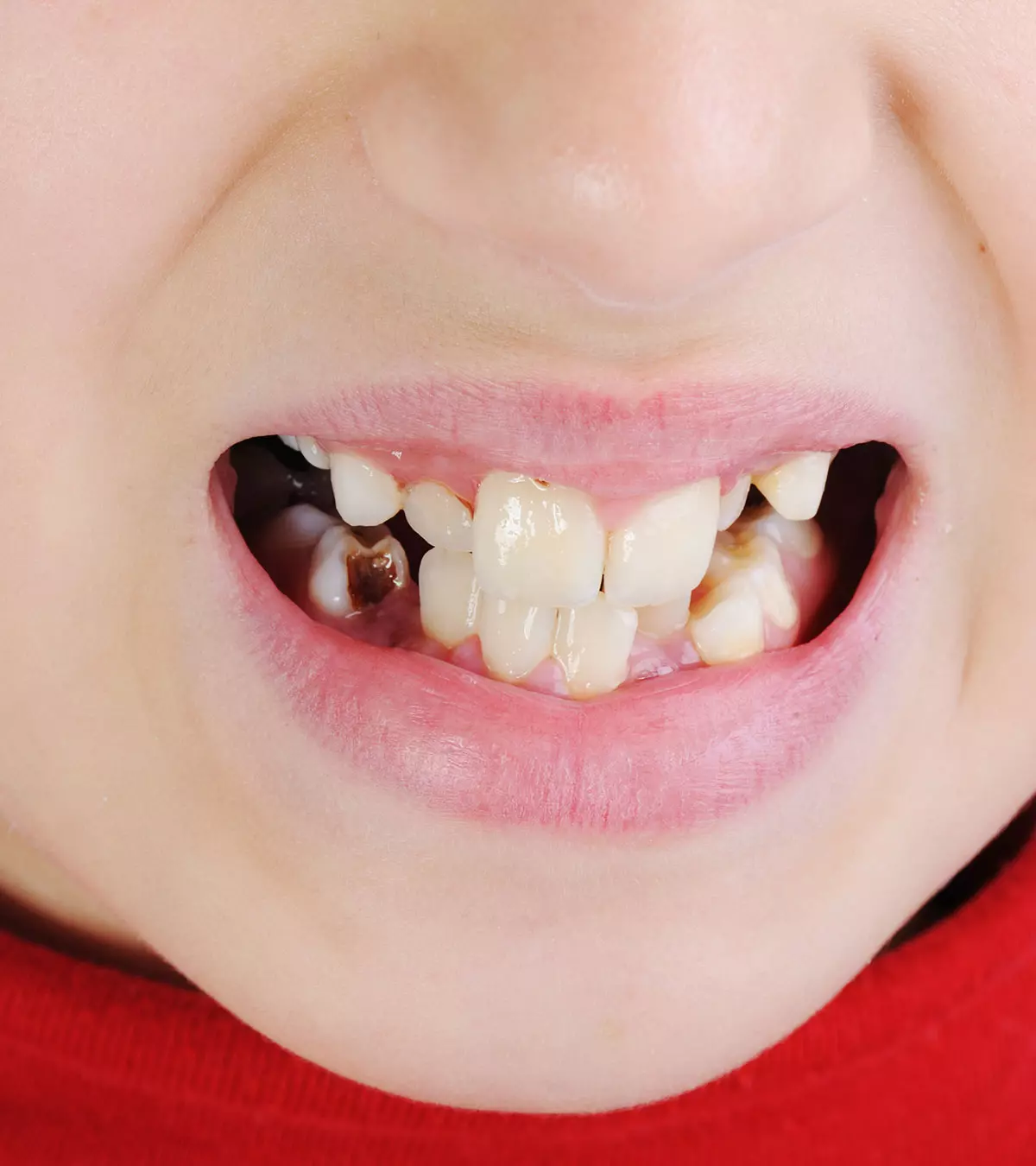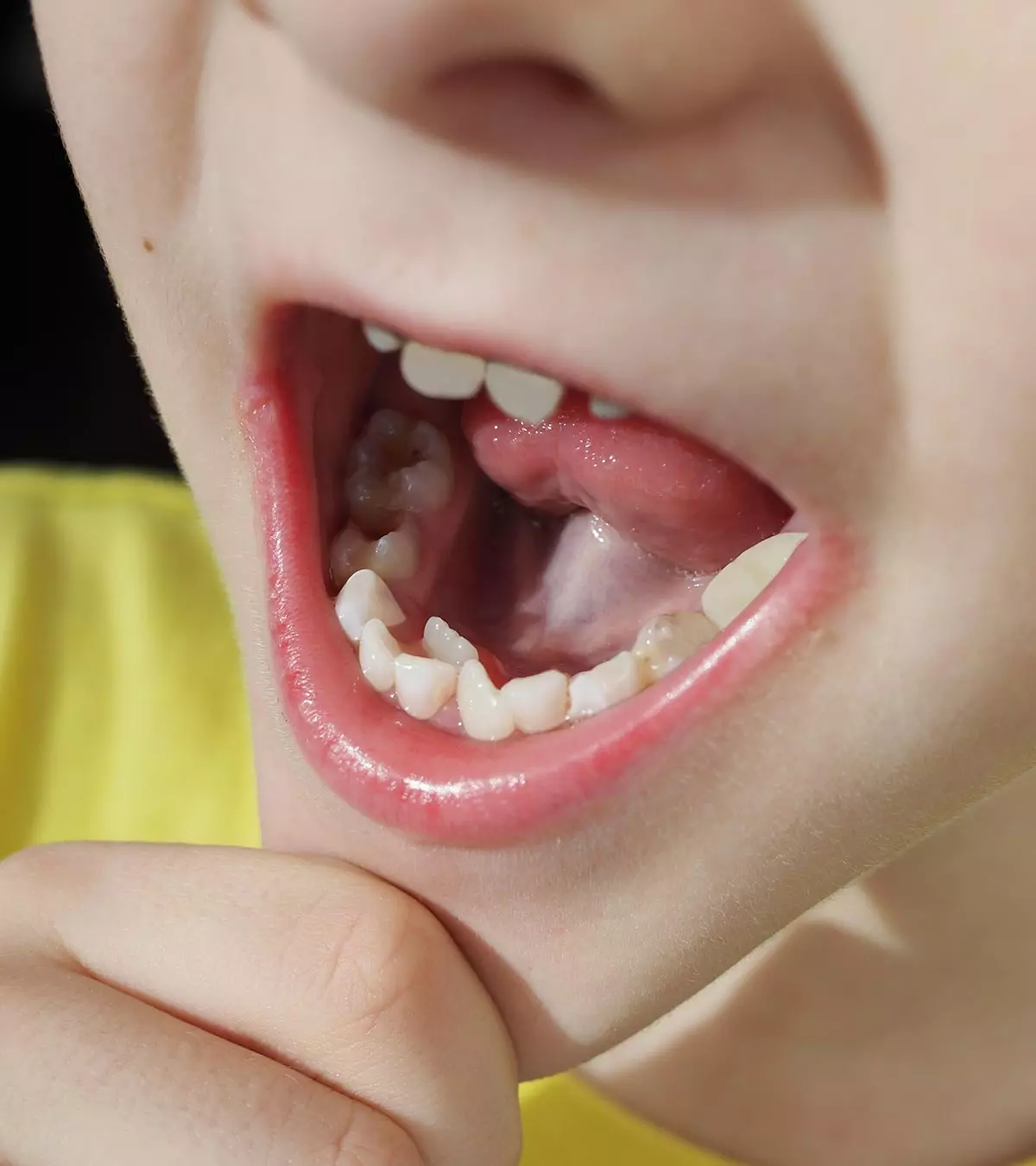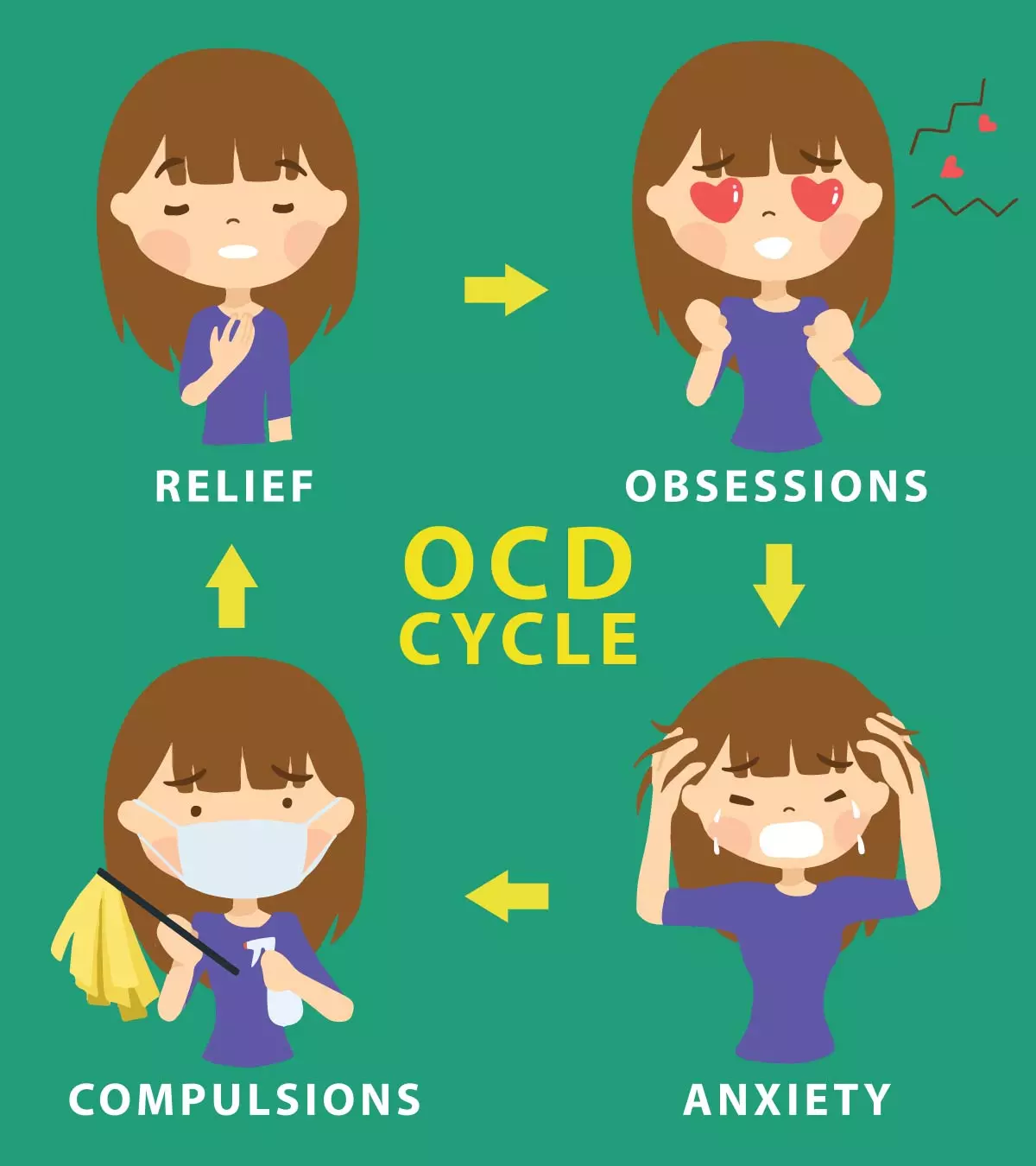
Image: Shutterstock

Sometimes, children don’t know how to curb their urges and may steal things without realizing the consequences of their actions. However, if this occurs frequently, the child may get habituated to stealing. If you find yourself in this sensitive and alarming situation, you may be confused, like most parents, about what to do when your grown child steals from you. The desire to steal often arises from an impulse, causing the child to indulge in fulfilling their needs, even by immoral means. However, this tendency must be nipped in the bud tactfully and cautiously. Here we discuss why children steal and how to discipline a child who lies and steals.
Key Pointers
- Children may steal for various reasons, including innocence, lack of self-control, peer pressure, revenge, lack of money, anger, or seeking attention.
- Stealing can be addressed by employing punishment strategies such as disapproval, and engaging the child in household chores and social service.
- Incorporating honesty and respect for others’ properties in upbringing can help prevent the child from stealing.
- However, if the child continues the habit even after parental counseling, seeking expert help is recommended.
Why Do Children Steal?
The urge to steal may not always arise due to a lack of money
. The following are some reasons a child may get involved in stealing:
1. Not knowing about it
Young children may do it out of innocence. They may not know taking away a thing that belongs to someone else amounts to stealing.
2. Lack of control

Image: Shutterstock
Sometimes, a child may not have the self-control to resist the urge to acquire things they fancy. They also tend to be more impulsive. This could lead to shoplifting or swiping items from a friend’s house. This uncontrollable urge to take things without permission can also be attributed to a mental health condition, kleptomania. People who have been diagnosed with it do not steal belongings because of a character flaw or lack of self-control or willpower but because of an uncontrollable impulse to steal. They may have a difference in their brain structures, leading to fewer or weaker brain connections to control the inhibition. People with kleptomania feel several emotions like shame, stress, and guilt, which they try to compensate by donating things to charity. They may also return the stolen items and pay back for the items to the person. If caught, they may be liable for legal consequences and cause personal problems like maintaining friendships, job problems, and troubled relationships (1).
3. Peer pressure
It could be of two types. The first type causes children to desperately want to own something that is considered cool or that every person in the group owns. The second type pressures children to be involved in activities such as stealing because their peers are.
4. Revenge
Children are not mature enough to understand the boundaries of taking revenge and may go overboard. For example, if a friend unintentionally breaks their toy, they may steal something valuable from the friend in retaliation.
5. Lack of money
The lack of sufficient resources to purchase an item may push a child to steal it. In such circumstances, help the child understand that not everyone can afford such things. Also, teach them that they need to work hard for what they want, and there are no shortcuts in life.
6. Stress

Image: Shutterstock
A stressful situation at home or school may force the child to behave differently. They may steal objects that do not particularly attract them simply for the adrenaline rush.
No matter the reason, stealing should be dealt with seriously, and the child must be made aware of the consequences.
 Point to consider
Point to considerHow Should You Punish A Child For Stealing?
The following points do not merely discuss prevention and punishment strategies but also aim to improve the child’s perspective toward life. You may modify these approaches based on several factors, including the child’s age and how frequently they tend to steal. Avoid tying punishment strategies based on the severity of stealing since it should be discouraged regardless of the stolen item’s value.
Here are some ways to respond when your child steals.
- Disapproval
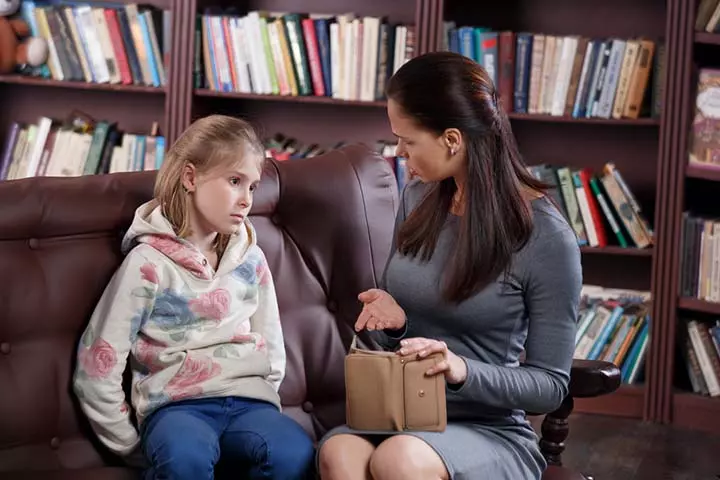
Image: Shutterstock
Make it clear that you are disappointed and upset with them. Tell them that such behavior is never acceptable, and they are required to follow a code of conduct as a part of society. Remember to approach the situation with empathy while also being assertive in conveying your message.
- Household chores
As a part of disciplining the child, assign them certain mundane chores around the house for some days. Ensure the child does not skip a day to prevent taking the matter lightly.
- Social service

Image: Shutterstock
Social service is often wrongly associated with punishment since people are pushed to do it only when they do something wrong. Therefore, take this opportunity to introduce your child to how meaningful social service can be. Helping the less fortunate may give them a different perspective on life.
- Journaling
Ask your child to write down why they stole and why it was wrong to do so. This will encourage them to reflect on their actions.
- Owning up
If your child has managed to steal something without getting caught, make it clear that they need to admit their mistake and return the object. Ensure that they apologize for their behavior and offer to make amends instead of justifying what they did.
How To Prevent Or Stop A Child From Stealing?
Stealing may not appear to be a serious crime at first because the child may begin with insignificant objects like bobby pins.
But it needs to be addressed to prevent bigger problems in the future. As parents, you must first understand what motivates your child to steal and then take the necessary steps. Here are some strategies to help discipline your child and prevent or stop them from stealing:
- Inculcate honesty

Image: Shutterstock
If your child has been brought up with values of integrity and honesty, they are less likely to indulge in stealing. Teach them that even if they did so by mistake, they must be honest and accept it.
- Respect others’ properties
Teach your child how to respect the property of other people. Make it clear that an object owned by some others does not rightfully become theirs when they steal it.
- Make them aware of the consequences
Your children need to know what happens if they steal. Tell them how a tiny theft can escalate into something they didn’t see coming, and the best way to deal with it is by admitting it and never doing it again.
- Take action right away
Don’t delay reacting to your child’s misbehavior. It’s extremely crucial you first understand how to discipline a child effectively in these situations. Do not wait for them to repeat it a second or third time to address the issue. Instead, talk it out the first time they steal to prevent it from escalating.
 Point to consider
Point to considerFrequently Asked Questions
1. Is it normal for a child to steal?
Stealing is one of the bad habits in kids. While many parents feel anxious and worried about their child’s stealing behavior, it’s important to note that lying and stealing are common during childhood. Most children outgrow this habit; however, in some cases, it could indicate a serious problem that must be addressed (2).
2. When does stealing become a concern?
Stealing behaviors in children need to be evaluated if the child does not show any signs of regret following such actions, constantly lies to gain what they want, has no social circle, and displays psychological problems (2).
3. What are some common mistakes parents and caregivers make when dealing with a child who steals?
While dealing with a child caught stealing, parents or caregivers must approach the situation with understanding, discipline, and calmness. Common mistakes that might worsen the situation include ignoring or downplaying the behavior, reacting with anger or punishment, labeling or shaming the child, lack of communication, and failing to set clear boundaries and consequences. Parents must remember that professional help is always an option when they find themselves overwhelmed by the situation.
Early intervention prevents stealing from becoming a part of your child’s personality. Encouraging positive behavior in children is essential during this time, as it helps them understand the importance of honesty and integrity. Therefore, talk to your child, understand why they are stealing, and try to build trust. Also, make them aware of the serious consequences stealing can have on their life. However, if your child does not stop stealing, consider seeking professional counseling.
Infographic: Positive Punishments And Preventive Measures For Stealing In Children
Scolding or punishing a child for stealing may not be a long-term solution. Children should be patiently made to understand the consequences of their actions and supported to overcome the habit. The infographic below suggests ways to deal with stealing in children.
Some thing wrong with infographic shortcode. please verify shortcode syntaxIllustration: Reasons Why Kids Steal And How To Stop Them From This Habit

Image: Dall·E/MomJunction Design Team
Take expert advice from this video to effectively address the challenging issue of your child’s stealing behavior.
References
- Kleptomania.
https://my.clevelandclinic.org/health/diseases/9878-kleptomania - Lying and Stealing.
https://www.hopkinsmedicine.org/health/conditions-and-diseases/lying-and-stealing#:~:text=Lying%20and%20stealing%20are%20common - My Child Is Stealing.
https://www.hopkinsallchildrens.org/Patients-Families/Health-Library/HealthDocNew/My-Child-Is-Stealing#:~:text=Their%20behavior%20may%20reflect%20stress
Community Experiences
Join the conversation and become a part of our nurturing community! Share your stories, experiences, and insights to connect with fellow parents.
Read full bio of Shreshtha Dhar
Read full bio of Benidamika J Latam
Read full bio of Dr. Ritika Shah
Read full bio of Apoorva K










